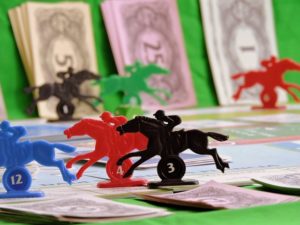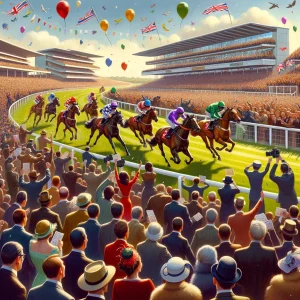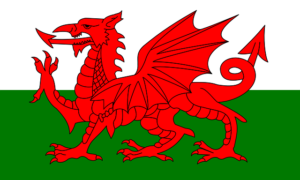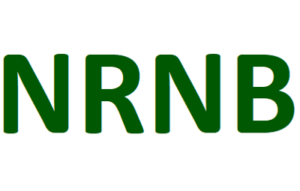Has a horse won the Grand National and Scottish Grand National in the same year?
 Notwithstanding the change of date in 2022, made to accommodate Easter, on April 17, the Scottish Grand National, run over 3 miles, 7 furlongs and 176 yards at Ayr, is traditionally staged a week or two after the Grand National at Aintree. Consequently, few horses attempt the Aintree-Ayr double and those that do have precious little recovery time between the two races.
Notwithstanding the change of date in 2022, made to accommodate Easter, on April 17, the Scottish Grand National, run over 3 miles, 7 furlongs and 176 yards at Ayr, is traditionally staged a week or two after the Grand National at Aintree. Consequently, few horses attempt the Aintree-Ayr double and those that do have precious little recovery time between the two races.
However, one horse has won the Grand National and the Scottish Grand National in the same season. That horse was, of course, the incomparable Red Rum, who did so in 1974. That year, the Grand National fell on March 30 and the Scottish Grand National on April 20, fully three weeks later.
At Aintree, Red Rum was sent off 11/1 third favourite to become the first horse since Reynoldstown, in 1936, to win back-to-back renewals of the Grand National. Despite top weight of 12st 0lb, he did so in style, drawing clear in the closing stages to beat L’Escargot by 7 lengths, eased down.
Despite misgivings from various quarters, including jockey Brian Fletcher, trainer Donald ‘Ginger’ McCain sent Red Rum to Ayr where, under a 6lb penalty, he was saddled with 113st 13lb. The rest, as they say, is history; under a patient ride, Red Rum jumped upsides the leader, Proud Tarquin, three fences from home, led over the final fence and readily asserted on the run-in to win by 4 lengths.
Fast Forwarding to 2024 and can history repeat itself? In 2023 Kitty’s light won both the Scottish Grand National and the Gold Cup, an impressive double. This year though the thoroughbred is around 12-1 with horse racing betting sites to win the Grand National and similar odds with bookmakers to win the Scottish Grand National too. Now that would be a nice double to have come up and I’m sure some punters will be temped to put a few quid on just that outcome!
 The short answer is yes, he did. Nowadays, Michael Anthony ‘Mick’ Fitzgerald is best known as a presenter on ITV Racing but, between 1993 and the end of his riding career in 2008, he was stable jockey to Nicky Henderson. Fitzgerald broke his neck in a fall at Market Rasen in 2005 and, having returned to race riding, damaged his spinal cord in another in the Grand National in 2008, which ultimately brought an end to his career four months later. Nevertheless, he was one of the most successful jump jockeys of all time, with 1,280 winners to his name, more than half of which were for Henderson.
The short answer is yes, he did. Nowadays, Michael Anthony ‘Mick’ Fitzgerald is best known as a presenter on ITV Racing but, between 1993 and the end of his riding career in 2008, he was stable jockey to Nicky Henderson. Fitzgerald broke his neck in a fall at Market Rasen in 2005 and, having returned to race riding, damaged his spinal cord in another in the Grand National in 2008, which ultimately brought an end to his career four months later. Nevertheless, he was one of the most successful jump jockeys of all time, with 1,280 winners to his name, more than half of which were for Henderson. Nowadays run over 3 miles, 6 furlongs and 130 yards, the Welsh Grand National has been a fixture of the Yuletide programme at Chepstow since 1979. Notwithstanding the fact that the going at Chepstow in late December is often soft or heavy, the marathon distance of the Welsh Grand National and its position in the calendar – three months or so before the Grand National, in late March or early April – ought to make it a reliable trial for the Aintree showpiece.
Nowadays run over 3 miles, 6 furlongs and 130 yards, the Welsh Grand National has been a fixture of the Yuletide programme at Chepstow since 1979. Notwithstanding the fact that the going at Chepstow in late December is often soft or heavy, the marathon distance of the Welsh Grand National and its position in the calendar – three months or so before the Grand National, in late March or early April – ought to make it a reliable trial for the Aintree showpiece. The popularity of ante-post betting on horse racing – that is, placing a bet on the outcome of a horse race well in advance of, or at least a day before, the off – is not what it once was. Betting ante-post doesn’t necessarily guarantee that you’ll receive better odds than if you bet on the day of the race, with the added risk that you’ll lose your money if your selection doesn’t run, for whatever reason.
The popularity of ante-post betting on horse racing – that is, placing a bet on the outcome of a horse race well in advance of, or at least a day before, the off – is not what it once was. Betting ante-post doesn’t necessarily guarantee that you’ll receive better odds than if you bet on the day of the race, with the added risk that you’ll lose your money if your selection doesn’t run, for whatever reason.